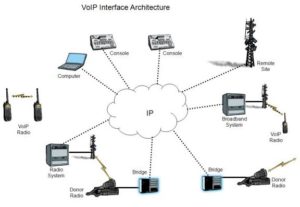While many people are now aware of VoIP and its potential for versatile, cost-efficient communications, there is a certain amount of jargon that has the potential for confusion associated with any technology. Let’s take a look at some common VoIP terms and their meanings.

Image Credit
Voice to data and back
CPE
This is an acronym for customer premises equipment, which is the kit that will convert the digital data to voice.
Data
Refers to all the traffic through a network apart from voice.
Data transfer rate
The data transfer rate is how fast data can travel through a network to arrive elsewhere.

DHCP
This stands for dynamic host control protocol, which enables IT admin to assign IP addresses within a network of devices.
Evolving technology
MTA
The multimedia terminal adaptor connects a traditional phone line to cable and converts analogue voice signals to digital data.
PSTN
This is the public switched telephone service, or the traditional national and international phone service. Consumer use of traditional landlines is in rapid decline as more users turn to internet-based calling platforms.
SIP
This stands for session initiation protocol, which is also known as trunking. Trunking can use VoIP to connect a PBX – a public branch exchange – system to an internet system, with the internet element replacing the traditional telephone line element and giving a business greater flexibility in connecting with PSTN users.
Wholesale VoIP termination rates
This refers to what VoIP providers might include in a business package. Thanks to an extensive global network, wholesale VoIP termination rates mean that VoIP calls will still have low charges no matter what network or country they may terminate in. To learn more about this, it is a good idea to contact a reputable provider such as https://www.idtexpress.com/blog/2018/04/07/wholesale-voip-termination-rates-why-voip-is-booming/ for more information.
There are many more acronyms and bits of jargon that can apply to the world of VoIP; however, the important thing is to identify your communication needs and what kind of VoIP package will address these
VoIP is convenient, easy to install, easy to scale up or down, and requires little maintenance compared with traditional phone networks. There are many VoIP advantages for businesses, with a reputable VoIP supplier able to give you advice on the right package







